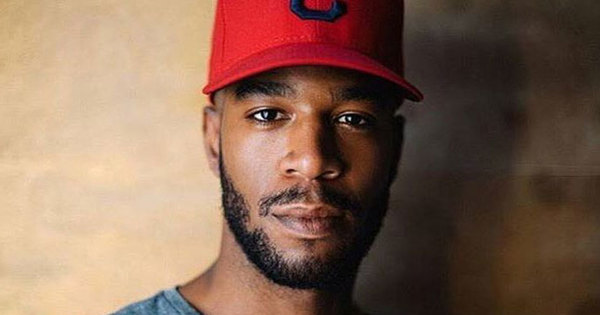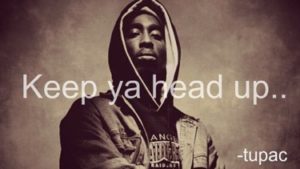Mental illness and substance abuse is a topic that has recently been receiving much needed attention within HipHop culture. Kid Cudi who recently made his comeback at the BET Experience event in California; came forward in 2016 with an emotional statement to fans, friends, and family admitting that he “wasn’t at peace” and was going to seek help for “depression, and suicidal urges.” Although his admission of pain was brave, it’s heartbreaking to know that his suffering wasn’t something recent, but an affliction he had been dealing with since the beginning of his career. We love Cudi, and we’ve known him for almost 10 years. No one should suffer in silence for that long, but all too often this is the story within our communities. For decades there’s been a stigma attached to mental health and treatment that has forced sufferers to put on a mask in front of their peers while the pain continually takes it toll. Cudi’s expression of these truths has since birthed a conversation about our mental wellness; a subject that has been bubbling under HipHop’s surface for decades.
Legendary rappers like Tupac, Biggie, Eminem, Royce Da 5’9, and Kendrick Lamar have all touched on mental health, suicide, and substance abuse through their lyrics for as long as we’ve known them. Biggie raps in his song “Suicidal Thoughts”: “I wanna slit my wrist and end this bullshit…” “I can’t believe suicide is on my fucking mind, I wanna leave, I swear to God I feel like death is fucking calling me.” By the end of the song a shot is fired, and a body can be heard falling to the floor. Kendrick Lamar speaks on substance abuse in his song “u” off his album “To Pimp a Butterfly” where the clinking of bottles can be heard in the background of the entire song. In Tupac’s song “Thugz Mansion” Pac raps: “…I once contemplated suicide but when I held that nine, all I could see was my momma’s eyes.” For decades we’ve enjoyed tracks from our favorite rappers while allowing their suffering to run rampant, and never once coming together as a community to combat these issues at scale. Leaving artists, friends and loved ones to suffer much like Cudi did; in veiled silence.
Mental health statistics are staggering amongst American’s, and it’s clear that this is no longer an issue we can hide from. An estimate from the National Alliance of Mental Illness states that approximately 1 in 5 youth aged 13–18 experiences a severe mental disorder at some point during their life, and among the 20.2 million adults in the U.S. who experience a substance use disorder, half (50.5% – 10.2 million adults) have a co-occurring mental illness. 70% of youth in juvenile justice systems have at least one mental health condition and at least 20% live with a serious mental illness.
With African Americans and Hispanic Americans using mental health services at about one-half the rate of Caucasian Americans in the past year and Asian Americans at about one-third the rate, it is common for members of the HipHop community to neglect treatment for a plethora of reasons. The recent rise of substance abuse chatter within our culture is also worrisome to think about. There may be an entire generation of young men and women who are be lost in drugs, and alcohol, while slighting treatment at the same time, a predicament reminiscent of the Reagan era.
Considering the issues often facing members of lower socioeconomic communities such as violence, and loss, (which often leads to depression and internalized rage), it isn’t hard to see why a deterioration of mental status and subsequent self medication has become the default method of cooping. The topic arose in an interview with Viceland.com, Kendrick Lamar and Doctor Jorga Leap in their documentary “NOISEY Bompton: Growing up with Kendrick Lamar.” Leap who serves as a crisis interventionist in Compton, California talks about the deep wounds of marginalization, incarceration, and gang violence, and how it can be linked to self medicating. Leap says: “It’s not to get high, it’s more or less to suppress…”
Although statistics and projections seem grim, Kid Cudi’s return to music is a beacon of hope for anyone suffering in silence as he was. His openness about his depression has created a narrative about recovery instead of the all too familiar message of unassisted maintenance. Dr. Kendall Jasper and activist Rwenshaun Miller who recently did an interview at The Breakfast Club have taken strides to aid the community with websites such as www.arjcares.com and www.eustressinc.org which provides resources to patients. Please reach out to either of these organizations if you or someone you know needs help with mental health or substance abuse, and continue to take care of yourselves.





27 comments
phd dissertation help proposal https://help-with-dissertations.com/
zelda inventory slots https://slotmachinegameinfo.com/
free coins hot shot slots https://www-slotmachines.com/
nude slots for free https://download-slot-machines.com/
slots for free https://beat-slot-machines.com/
gladiator slots https://slotmachinesworld.com/
fortune slots free online https://pennyslotmachines.org/
caesars free slots online https://candylandslotmachine.com/
free gay/bi chat https://bjsgaychatroom.info/
1seneschal
the best free gay hookup and dating sites https://gaysugardaddydatingsites.com
u.s. justice department gay dating app https://gayfade.com
gay dating sites for people in the closet https://gay-buddies.com
1edmonton
introduction essay examples https://vpnshroud.com/
essay check https://vpn4home.com/
what is a hook in an essay https://thebestvpnpro.com/
essay rewriter https://tjvpn.net/
essay writers service https://topvpndeals.net/
implicit premise examples of critical thinking https://uncriticalthinking.com/
what are the critical thinking skills https://criticalthinking2020.net/
critical thinking is https://criticalthinkingbasics.com/
writing good essay https://checkyouressay.com/
write an opinion essay https://howtowriteessaytips.com/
best custom essay writing services https://topessayswriter.com/
keto shopping list https://ketogendiets.com/
ps4 sex games https://cybersexgames.net/